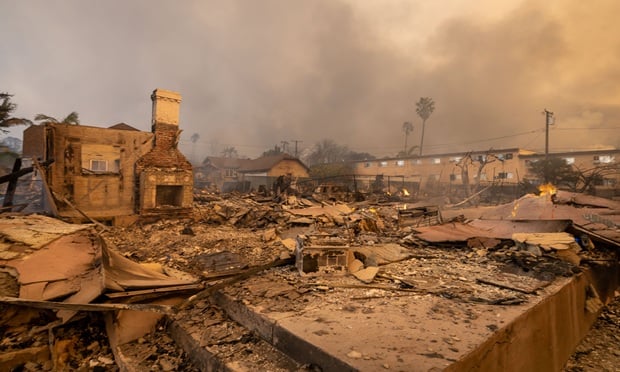It was not the finest moment for the National Association of Insurance Commissioners. Amid almost comic confusion, the group last month managed a 180-degree policy reversal, recommending that states ask insurers to voluntarily respond to surveys about climate-related risks and then keep any information collected confidential.
 The vote took a lot of people by surprise, as the association's position for a year had been that the survey should be mandatory, with results made available to the public.
The vote took a lot of people by surprise, as the association's position for a year had been that the survey should be mandatory, with results made available to the public.
Then, without warning, a new draft emerged at the 11th hour. While insurers are no doubt pleased by the turnabout, NAIC's opaque, dysfunctional policy-making process remains troubling.
Of course, since the NAIC's positions do not carry the weight of law, states are free to do a mandatory survey and make the results public, and at least one has vowed to do so.
In case you missed Phil Gusman's blow-by-blow report (http://bit.ly/cZAlut), basically the NAIC sprung a new "Version 3″ on commissioners right before the final vote. The latest plan–approved by a narrow margin of 27-22–was not released publicly before regulators voted on it (although it is now available on the NAIC Web site at http://www.naic.org/meetings_home.htm).
What's worse, many of the regulators weren't even clear what Version Three actually said when it was brought to a vote. In fact, many commissioners appeared to be totally in the dark about how the latest proposal was drafted in the first place.
Even the one regulator you would expect to be the point person and expert on this initiative–Pennsylvania Insurance Commissioner Joel Ario, who chairs the NAIC's Climate Change and Global Warming Task Force–said he "did not see the document…labeled 'Version Three'" before voting on it.
Summing up the biggest problem with this particular debacle, Mr. Ario wisely observed: "I think it's not good public process to be adopting something that no one's seen."
Process aside, there is a lot to like in the approved draft. Insurers would rather have seen the idea dumped entirely, but at least the latest version lets them off the hook in many respects while protecting their corporate privacy.
In the end, the NAIC recommended only that states supply aggregate data to help prepare a national report on climate risk preparedness. Carriers had been complaining that public access to individual responses could have revealed proprietary information.
They are also very happy that regulators promised not to use the survey as a basis to consider proposed rate changes.
The approved draft even includes language that pays lip service to those who dispute global warming, or who deny that climate change is being prompted by human actions. The NAIC added verbiage specifying that the survey initiative does not "endorse, reject or otherwise express an opinion on the existence or absence of climate change." (If that is truly the case, what is the point of all this?)
But this bizarre episode brings to light once again the bigger problem of having a private trade organization–even if it is made up of state regulators (indeed, especially because it is made up of public officials)–exerting so much influence over government policy.
It's almost like having a shadow government at work, making up rules as it goes along, with no real accountability to the public. It's an old complaint about the NAIC, but with financial regulatory reform on the front burner in Washington, there has got to be a better way.
What do you folks think?
Want to continue reading?
Become a Free PropertyCasualty360 Digital Reader
Your access to unlimited PropertyCasualty360 content isn’t changing.
Once you are an ALM digital member, you’ll receive:
- Breaking insurance news and analysis, on-site and via our newsletters and custom alerts
- Weekly Insurance Speak podcast featuring exclusive interviews with industry leaders
- Educational webcasts, white papers, and ebooks from industry thought leaders
- Critical converage of the employee benefits and financial advisory markets on our other ALM sites, BenefitsPRO and ThinkAdvisor
Already have an account? Sign In Now
© 2025 ALM Global, LLC, All Rights Reserved. Request academic re-use from www.copyright.com. All other uses, submit a request to [email protected]. For more information visit Asset & Logo Licensing.








